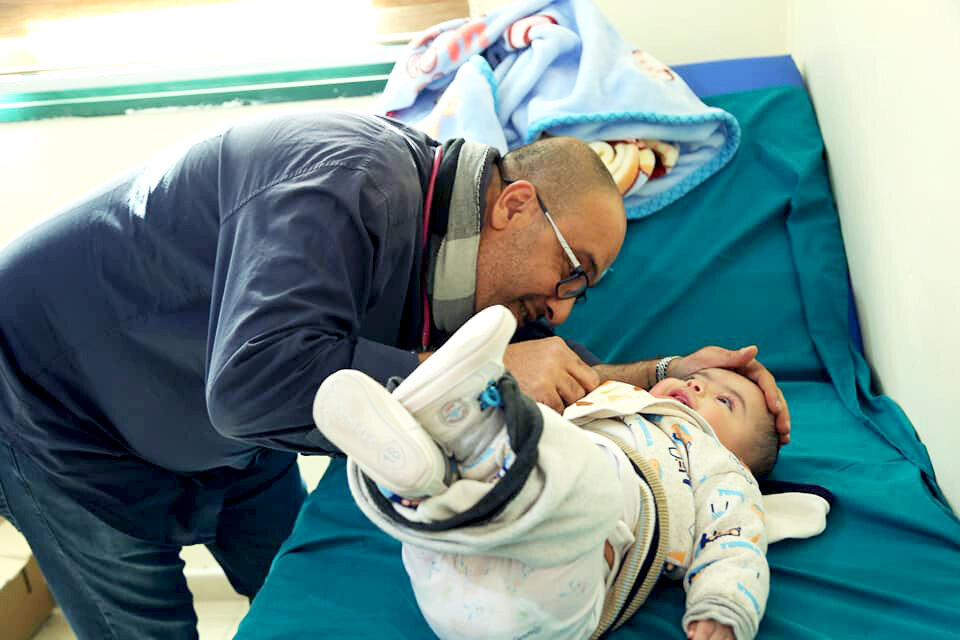
The Village
Humanitarian Aid Program
The Humanitarian Aid Program enables Village physicians, nurses, and pharmacists to bring free medical care—including examinations, surgeries, medication, counseling, transportation, and referrals—to those in Gaza and the West Bank who have limited access to resources.
History
Following the Second Intifada in 2000, many villages, towns, and cities in the West Bank were cut off from medical services. Without access to doctors, and without permission from the Israeli Defense Forces or the Civil Administration to cross from one town to another, those with untreated illnesses and conditions suffered chronic disease, permanent injury, and even death.
In 2002, health care professionals from the Village began deploying mobile clinics to respond to this crisis, and the Humanitarian Aid Program was born. The program now works within Israeli and Palestinian bureaucratic processes to secure permits, deploy medical teams, and enable visits and transportation to and from the West Bank and Gaza, with follow-up support for children with severe burns as well as for open heart surgery patients and amputees.
To learn more, read Malak’s story.
How It Works
Members of the Village, including doctors, nurses, pharmacists, and counselors, volunteer their time, skills, and resources to regional hospitals and clinics at no cost. Because there is no overhead, donations to the Humanitarian Aid Program go directly toward funding medical supplies and transportation for patients in need.
Families and their critically injured or sick children from Gaza are brought to hospitals in Israel, often with the help of the Israeli military. The children are treated by Israeli-Palestinian and Israeli-Jewish medical professionals who work side by side.
The program also provides patients with food and clothing and sponsors an annual summer camp for children living under the occupation.
Impact
The Humanitarian Aid Program funds a treatment room in Nablus’ An Najah hospital that serves Palestinian residents of the West bank and Gaza who cannot get the critical medical care they need from local facilities. Proceedures range from heart, lung, and kidney operations to bone marrow transplants.
For years, the program has enabled Village pediatrician Dr. Raid Haj Yehia to make weekly trips to remote villages and refugee camps to treat children with no access to health care. Several times a year he travels to Gaza to work in hospitals with very limited electricity, supplies, staff, equipment, and medicine.
The program’s annual summer camp brings children from West Bank refugee camps to the Village to live for a week. For most, this is their first exposure to non-military Jewish Israelis. Camp volunteers secure travel permits, provide accomodations, and organize activities and field trips. The camp has also hosted a group of 35 children and their families from the village of Bil’in to experience the reality of Jews and Palestinians living together bilingually, in equality.



